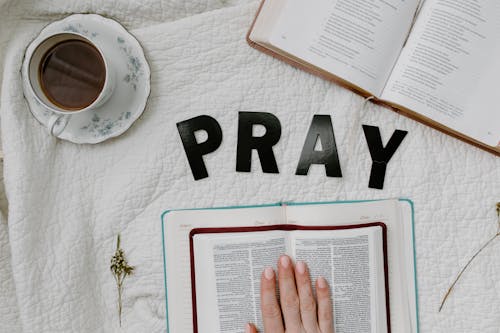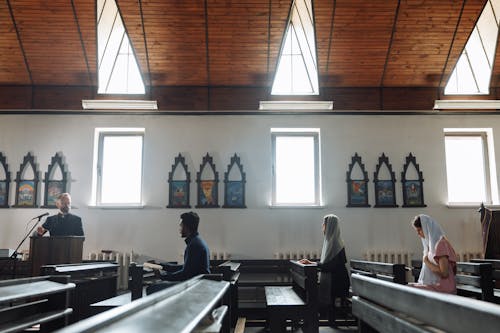In a world frequently characterized by chaos and query, prayer remains a dateless sanctuary, offering peace, clarity, and a connection to the godly. Across societies and persuasions, prayer is a universal act of faith — a moment when the soul reaches out for guidance, strength, and blessings.
What Is Prayer?
Prayer is further than reciting words; it’s a profound discussion with the Creator. It’s an act of modesty, gratefulness, and stopgap. Spoken in silence, chanted in accord, or expressed through gashes, prayer is a ground between the mortal and the godly.
Why Do We supplicate?
To Seek Guidance Life’s trip is frequently riddled with crossroads. Prayer helps illuminate the path when opinions feel daunting.
For Strength in Adversity
During trials, prayer can give the inner fiber demanded to endure and overcome.
To Express Gratitude
Counting blessings fosters pleasure, and prayer offers a way to thank the godly for life’s gifts.
To make Faith
Prayer nurtures trust in a advanced power, reminding us that we’re no way alone.
The Blessings of Prayer

Inner Peace
Prayer calms the mind, reduces anxiety, and fosters a sense of serenity.
Renewed Perspective
It shifts focus from problems to possibilities, inspiring stopgap and sanguinity.
Strengthened connections
soliciting for loved bones deepens connections and cultivates empathy.
Cautions and improvements
numerous swear that prayer has brought about unconceivable blessings, from healing to unanticipated openings.
Incorporating Prayer into Daily Life

Start Your Day with Gratitude
Begin each morning with a moment of appreciativeness.
produce a Sacred Space devote a quiet area for reflection and prayer.
Supplicate with Intent
Speak from the heart, fastening on meaningful requests or declarations.
Join a Community
Shared prayers in groups or congregations can amplify spiritual energy.
End Your Day with Reflection
Close the evening with prayers of gratefulness and rest in peace.
A Universal Blessing
No matter where you’re in life, prayer is a gift accessible to all. As you engage in this sacred act, may your heart be filled with stopgap, and may your life be touched by godly blessings. ”
The Lord bless you and keep you; the Lord make His face shine upon you and be gracious to you.”( figures 624- 25)
Prayer as a Spiritual Anchor

Prayer, in its core, connects people to a higher power or inner purpose. Many view it as a holy conversation with the divine, which puts life’s problems and mysteries into a bigger picture. It gives meaning, helps align thoughts, and comforts when doubt creeps in making people feel linked and hopeful. Christians often see prayer as talking straight to God, a way to show thanks, ask for help, or speak up for others.
In Islam, praying five times a day (Salah) builds self-control and mindfulness shaping believers’ lives. In Hinduism, chants and rituals are key to prayer creating a steady spiritual bond with the divine.
The Ripple Effect of Prayer

Prayer does not just profit the existent; it has a ripple effect on families, communities, and indeed the world. When we supplicate for others, we extend our compassion and love, creating a collaborative energy of positivity and mending.
Intercessory prayers, where we supplicate on behalf of others, can strengthen bonds and promote a sense of concinnity. Whether soliciting for a friend’s recovery, peace in a community, or global harmony, these acts of selflessness amplify the transformative power of prayer.
Psychological Benefits of Prayer

The psychological benefits of prayer are increasingly confirmed by scientific studies. Consistent prayer or meditation has been proven to lower stress levels, lessen anxiety, and bolster mental health. Prayer encourages people to rise above their concerns and maintain focus on the more important issues by developing a habit of mindfulness and presence.
Those individuals who prayed daily scored lower on stress levels and expressed more peace than others who did not engage in this practice.
Prayer also often includes practices such as deep breathing, repetitions of phrases or visualization — all of which have calming effects on the nervous system.
Prayer and Community Building

Scientific studies are decreasingly uncovering the cerebral Among other effects, the prayer has a great power to make people united. Gathering to supplicate together forms common ground for fellowship, sapience, and collective support. Indeed, those moments can transcend social and artistic walls, easing a sense of belonging and solidarity. During heads, communities unite through prayer, drawing adaptability from united stopgap and action.
Whether it be a surveillance for peace or a congregation’s Sunday service, similar gatherings emphasize how prayer can cultivate empathy and compassion. Prayer has been rehearsed for thousands of times, and one of its aspects, the collaborative aspect of prayer, emphasizes its eventuality as a tool for social cohesion and harmony.
The Healing Power of Prayer

Numerous religionists hold that prayer has the power to heal, both emotionally and physically. While disbelievers may view this as a placebo effect, the growing field of psychoneuroimmunology suggests a deeper connection between the mind and body. Prayer, like other forms of focused intention, can spark the body’s natural mending mechanisms. multitudinous anecdotal accounts describe miraculous reclamations attributed to prayer.
While scientific confirmation of similar claims remains fugitive, the cerebral and emotional benefits of prayer really contribute to bettered health issues.
For illustration, prayer can reduce the perception of pain, enhance recovery from illness, and ameliorate managing mechanisms for habitual conditions.
Prayer in a Secular Context

Interestingly, the power of prayer is not confined to religious settings. Indeed those who identify as spiritual but not religious( SBNR) or temporal individualities can witness the benefits of prayer- suchlike practices. Conditioning similar as awareness contemplation, gratefulness journaling, or silent reflection share numerous characteristics with traditional prayer.
These practices foster tone- mindfulness, gratefulness, and a sense of connection — whether to a advanced power, the macrocosm, or one’s own inner wisdom. The key lies in the intentionality behind the practice, which allows individualities to transcend the mundane and valve into a deeper source of strength and alleviation.
Critiques and Challenges

Despite its many advantages, prayer is not without its drawbacks. Some critics charge that prayer leads to passivity, with individualities relying on godly intervention rather than visionary ways to deal with their problems. Others have questioned the efficacy of intercessory prayer, especially in scientific studies with mixed results.
To address these enterprises, it’s essential to see prayer as but one element of a holistic approach to life. While prayer may provide guidance and solace, it often works best in conjunction with action, community support, and other forms of tone-care.





